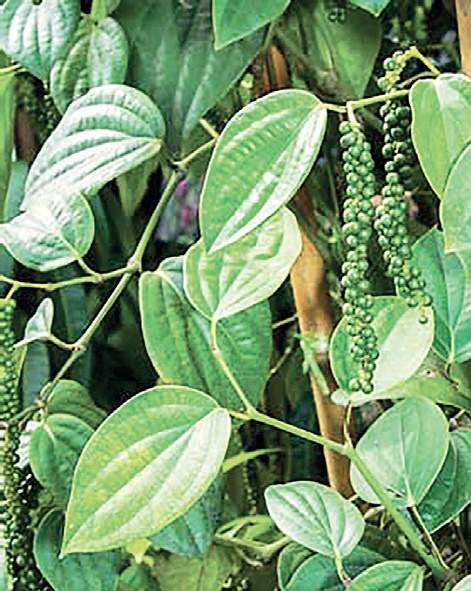Kozhikode :
The immense effort that goes into setting up a gene bank is such that it can be termed as a mission. And when a group of farmers here came together to start one, it turned out to be a worthy venture. And ‘spicy’ too.
The Koorachundu Sugandhavila Karshaka Samithi realised it was high time they set up a gene bank to conserve the native varieties of spices, after they found that imported and hybrid varieties have become popular among farmers. They decided to begin with pepper and the Indian Institute of Spices Research (IISR), Moozhikkal, which got enthusiastic about the idea, decided to help the farmers collect a wide variety of local pepper plants.
Unlike the research institutes where spices are conserved in labs and experimental farms, the Samithi members will grow local varieties in their farms. As of now, the farmers are conserving 11 pepper varieties, including Arakulam Munda, Chomala, Pottanadan, Thulamundy, Kaniyakkadan and Nedumchola.
“The idea came up when we thought about the Western Ghats’ conservation and peaceful co-existence of farmers and wild animals,” said Samithi secretary P T Thomas.The Samithi, which began its gene-bank mission a month ago, plans to expand its basket to include clove, nutmeg, mace, cardamom and cinnamon in the coming days. It has 30 farmers, who own around 90 acres. Each farmer will collect a specific spice and grow it in his farm.
“Landraces of many crop plants are getting eroded due to a variety of reasons. Conservation of the landraces, which harbour many useful genes, is mostly a government effort. However, if people-participatory or farm conservation can be effected, it’ll help conserve landraces in their natural habitat,” said IISR’s crop improvement and biotechnology division head B Sasikumar.
The native varieties of pepper have the capacity to survive in the Western Ghats and can be cultivated at a low cost. Farmers can plant it under a jackfruit tree without the need for a support system, said Thomas. In contrast, imported and hybrid varieties need a proper support system.
The Samithi members are hopeful the gene bank will become fully functional in 18 months’ time. “The yield from native varieties can be an influential thing among farmers as the yield influences the farmer to decide whether to continue with the cultivation or not. However, at the Samithi, we’re planning to go forward without considering the yield from native varieties,” said Thomas.
source: http://www.newindianexpress.com / The New Indian Express / Home> States> Kerala / by K C Arun / Express News Service / January 01st, 2017


